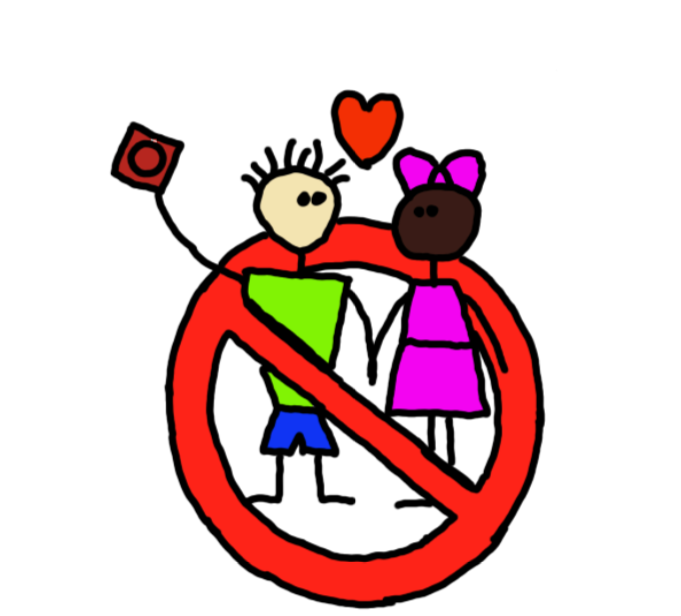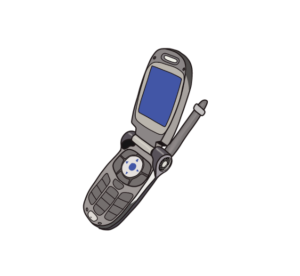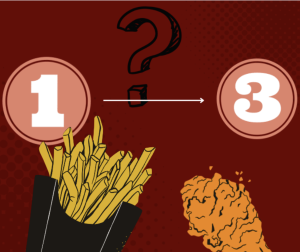High school health classes set unrealistic expectations for students
Health classes often focus on the negative outcomes when discussing controversial topics such as sex, alcohol and drugs. Schools need to be providing educational information instead of using fear to scare students away. (Graphic by Ava Coyle ’25)
Health teachers lecture while students squirm in their seats during the uncomfortable speeches about sex, pregnancy, STDs, drugs and alcohol. I laughed to my friends as I listened to my health teacher claim that the best way to not catch STDs is through not having sex. Any child could have drawn that conclusion on their own, I thought. Then I got to thinking: here schools go again, pushing abstinence on students.
As a high schooler I have been told that it is normal to be curious, to be experimental. Yet, when topics such as sex, alcohol and drugs, where many high schoolers experiment, are brought up, we are told to fear these experiences.
Health classes often focus on the scary facts of experimenting with these topics. If you drink once, you will get alcohol poisoning or become an alcoholic. If you smoke weed once, your brain won’t develop and you will be addicted to marijuana for the rest of your life. If you have sex, you will get pregnant or contract an STD that will make you infertile.
“An estimated 55% of male and female teens have had sexual intercourse by age 18 and approximately 80% of teens used some form of contraception at first sex,” the Center of Disease Control (CDC) said.
Speakers are brought in to talk about how addiction ruined their lives, but when they quit, they saw the light and made something of themselves. It teaches students to be scared instead of educated.
We are taught that everything will go wrong if we experiment with alcohol, marijuana and sex instead of creating healthy conversation about what to do if you drink too much, what to do if you smoke too much marijuana and how to start a conversation with your partner about safe sex.
High school is a time of wanting to fit in, not wanting to fall behind. This is why we need to have beneficial conversations about peer pressure and how to overcome these stressors. Yet schools haven’t gotten to the point where they can foster healthy conversations about what to do if you get in a scary situation.
Teenagers might be worried about the repercussions of doing something underage, and making decisions they cannot reverse. Schools need to start teaching the legal consequences of calling an ambulance if someone underage has alcohol poisoning. We should be having conversations about how to treat STDs if someone contracts one. Instead of trying to inflict fear, schools should be educating at a more realistic level.
In a 2019 study, it was found that 29% of teenagers have drunk alcohol, 14% binge drank, 5% drove after drinking and 17% rode with someone who had been drinking, the Center of Disease Control (CDC) said.
Teenagers should be taught that it is better to be safe, than sorry. It is better to call your parents, a friend’s parents, or any adult if you need help rather than risk their lives just to stay out of trouble.
I understand that schools cannot promote teenagers drinking, smoking and having sex, yet it shouldn’t be a topic that is brushed under the carpet, as these topics are new for high schoolers.It should be something that we are taught to do safely. We should be taught the indicators of something being put into your drink, how to identify if a drug has been laced with something else, if you can get an abortion without parental consent, do you have to be a certain age to buy plan-B or condoms.
I understand why schools have to be anti-drug/alcohol and make it clear that it is possible to contract an STD, but that only leaves students having unrealistic expectations and living in fear. Schools need to find the spot between promoting students to do these things and teaching students ways to be safe throughout their curiosity and what to do if something were to go wrong.

When one door is locked in your life, another one is meant to open. When Ava Coyle ’25 moved to Westport in eighth grade, she knew she had to get involved.
“Sports...





















































